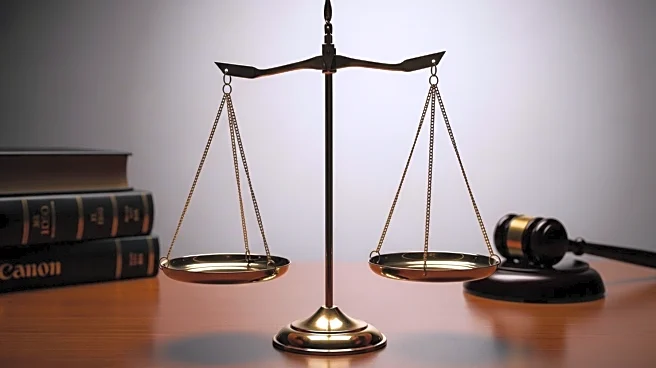What's Happening?
Los Angeles defense attorneys are facing potential delays and uncertainty due to a motion challenging the authority of Bill Essayli, the acting US Attorney for the district. This legal challenge, which mirrors a similar situation involving Alina Habba in New Jersey, questions the Trump administration's authority to appoint US attorneys without local input. The issue is expected to escalate to the US Supreme Court. In the interim, other lawyers may file similar motions against Essayli, potentially causing further delays in prosecutions. The controversy stems from Essayli's appointment not being presented to the US Senate, which would require support from California's Democratic senators. The situation has led to the departure of several prosecutors, who cited Essayli's disregard for DOJ rules as a reason for leaving.
Why It's Important?
The challenge to Essayli's appointment could have significant implications for the legal system in Los Angeles, potentially affecting numerous cases and prosecutions. If the motion succeeds, it may set a precedent for questioning the authority of acting US attorneys appointed under similar circumstances. This could lead to widespread delays in legal proceedings and impact the administration of justice in the district. The broader issue of presidential authority in appointing executive branch officials is also at stake, with potential ramifications for the balance of power between the executive and legislative branches.
What's Next?
The legal challenge against Essayli is likely to result in further motions to disqualify him, which could derail or slow prosecutions in Los Angeles. Prosecutors may consider delaying indictments until Essayli's authority is resolved. The case may eventually reach the US Supreme Court, where the broader issue of presidential appointment powers could be addressed. The outcome could influence future appointments and the statutory framework governing US Attorney positions.
Beyond the Headlines
The situation raises questions about the ethical obligations of defense attorneys to challenge appointments they believe are unlawful. It also highlights the tension between federal appointment statutes and the discretion of the Justice Department. The case could contribute to ongoing debates about the extent of presidential power in the executive branch, particularly in the context of judicial appointments.










